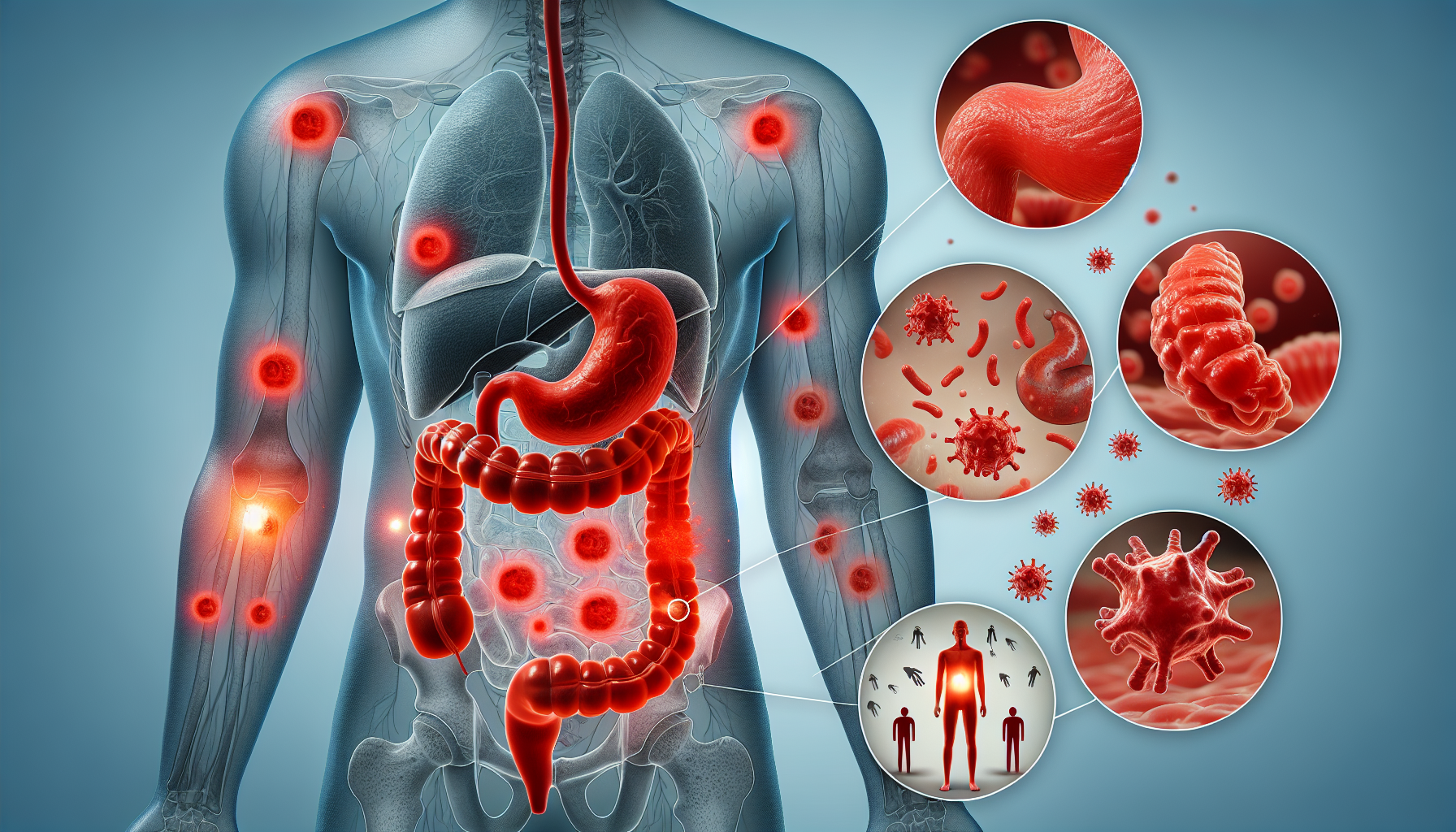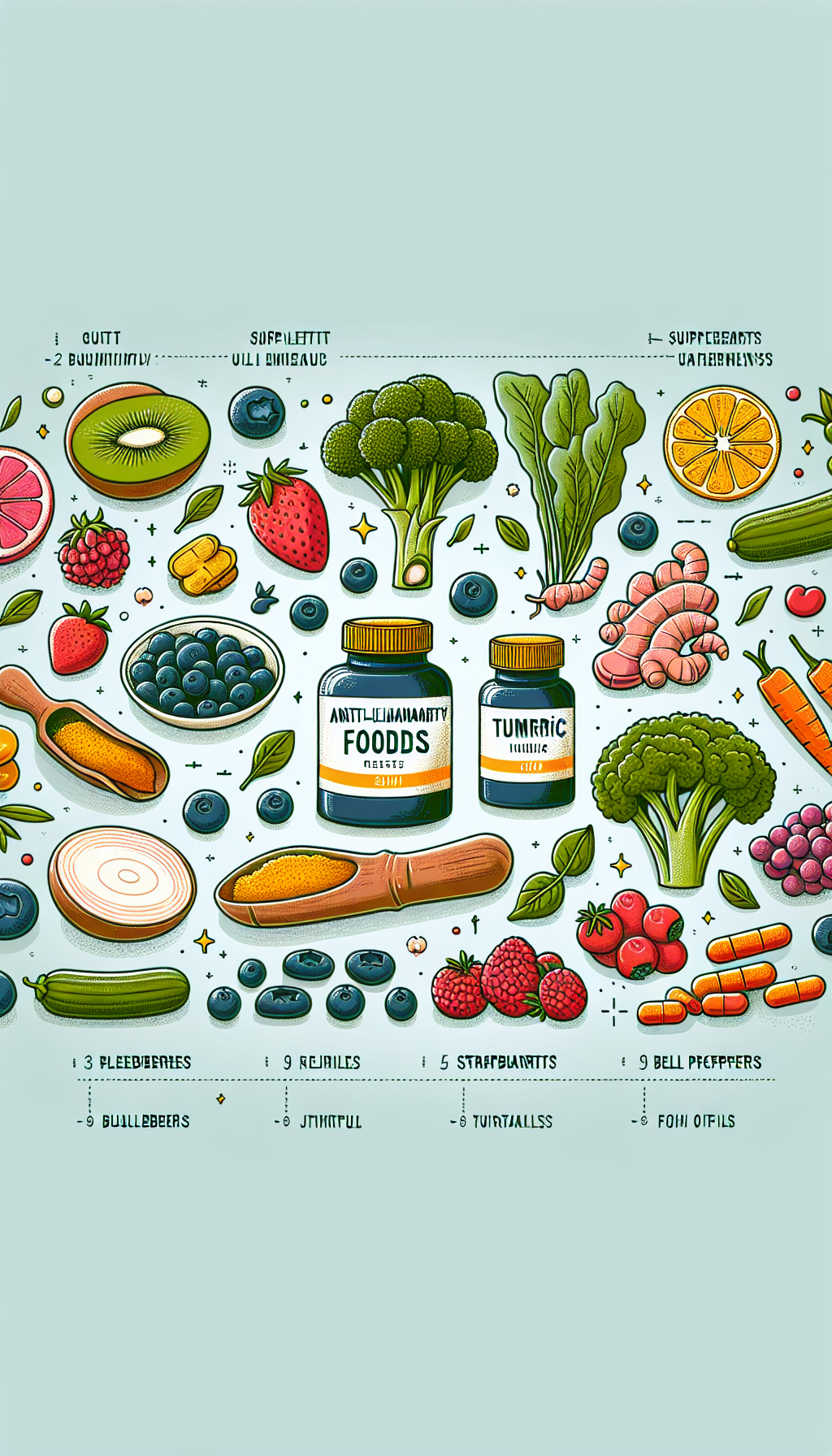Chronic inflammation is a pervasive issue that can significantly impact the health and function of the gut. This low-grade, persistent inflammatory response is increasingly recognized as a critical factor in the development and progression of various gut diseases. Through a comprehensive exploration of inflammation’s role in the gut, individuals can be better equipped to manage and potentially mitigate the influence of chronic inflammation on their digestive health.
Understanding Chronic Inflammation
Inflammation is a natural response of the body’s immune system to injury or infection. It is characterized by redness, swelling, heat, and pain, and while acute inflammation is a protective mechanism that facilitates healing, chronic inflammation is different. It can arise from numerous triggers such as persistent infections, autoimmune reactions, or the prolonged presence of irritants. When inflammation becomes chronic, it can lead to tissue damage and contribute to the onset of diseases.
The Impact on Digestive Health
Chronic inflammation in the gut can disrupt the normal function of the digestive system. It can affect the integrity of the gut lining, leading to conditions such as leaky gut syndrome, where toxins and bacteria can enter the bloodstream. This disruption can contribute to a range of digestive diseases, including inflammatory bowel disease (IBD), irritable bowel syndrome (IBS), and celiac disease.
Inflammatory Bowel Disease (IBD)
IBD, including Crohn’s disease and ulcerative colitis, is directly associated with chronic inflammation. These conditions result in ongoing inflammation of the gastrointestinal tract, leading to symptoms such as abdominal pain, severe diarrhea, fatigue, weight loss, and malnutrition.
Irritable Bowel Syndrome (IBS)
While the exact cause of IBS is unknown, chronic inflammation is believed to play a role in this condition’s symptomatology. IBS is characterized by a combination of digestive symptoms such as cramping, abdominal pain, bloating, gas, diarrhea, and constipation.
Celiac Disease
Celiac disease is an autoimmune disorder where the ingestion of gluten leads to inflammation in the small intestine. This chronic inflammatory response damages the intestinal lining, leading to digestive and nutritional issues.
Addressing Chronic Inflammation for Gut Health
Mitigating chronic inflammation is vital for maintaining digestive wellness. Here are strategies that can help manage inflammation:
Dietary Adjustments
A diet rich in anti-inflammatory foods can support gut health. Foods such as leafy greens, fatty fish, nuts, and fruits are known to help reduce inflammation. Conversely, a diet high in refined sugars, processed foods, and saturated fats can exacerbate inflammatory responses. For those interested in specific dietary strategies to manage gut-related conditions, exploring Nutritional Strategies for Managing Gastritis can provide targeted insights.
Lifestyle Modifications
Lifestyle factors, including regular physical activity and stress management, can influence inflammation. Exercise has been shown to promote healthy gut motility and reduce inflammation. Stress, on the other hand, can increase inflammation, so employing techniques like mindfulness meditation, which has benefits for digestive health, can be particularly helpful.
Supplementation
Certain supplements, such as probiotics, omega-3 fatty acids, and curcumin, have anti-inflammatory properties that can support gut health. It’s essential to consult with healthcare professionals before starting any new supplementation, especially since individual needs can vary greatly.
Medical Interventions
In some cases, medical treatment may be necessary to manage chronic inflammation. This can include the use of anti-inflammatory medications, immune system suppressors, or antibiotics if an infection is present. For a closer look at therapeutic interventions for digestive conditions, consider reading about Therapeutic Approaches to Managing Acid Reflux.
The Gut Microbiome and Inflammation
The gut microbiome, consisting of trillions of bacteria and other microorganisms, plays a crucial role in the immune system and inflammation. A balanced microbiome can protect against inflammation, while an imbalanced one can contribute to its development. Prebiotic and probiotic foods, as well as certain dietary fibers, can support a healthy microbiome. For further information on the microbiome’s role in gut health, the article on The Connection Between Gut Microbiome and Food Cravings offers valuable insights.
External Resources for Further Reading
To deepen your understanding of chronic inflammation and gut health, consider exploring these resources:
- A thorough review on the intricacies of chronic inflammation and its systemic effects can be found on the National Institute of Health’s website.
- A detailed analysis of dietary influences on inflammation is available through the American Journal of Clinical Nutrition.
- For insights into the latest research on probiotics and gut health, the International Scientific Association for Probiotics and Prebiotics provides a wealth of information.
Conclusion
Chronic inflammation is a significant factor in the development and progression of various gut diseases. Through dietary and lifestyle modifications, supplementation, and medical interventions, individuals can manage inflammation and support their digestive health. Understanding the intricate relationship between chronic inflammation and the gut is essential for those seeking to maintain or improve their digestive wellness.
By addressing chronic inflammation proactively, individuals can take a significant step towards preventing and managing gut diseases, leading to a better quality of life and overall well-being. Whether through natural means or medical interventions, the key is to create a personalized plan that addresses the unique needs and circumstances of each individual.



